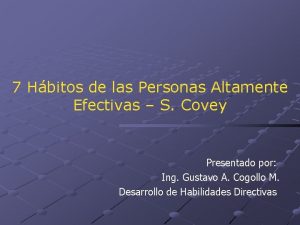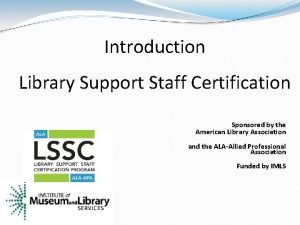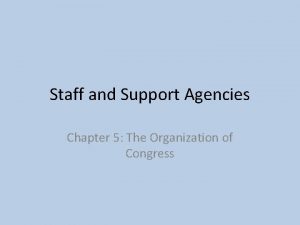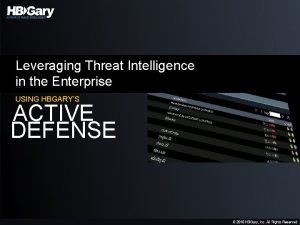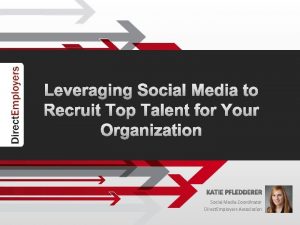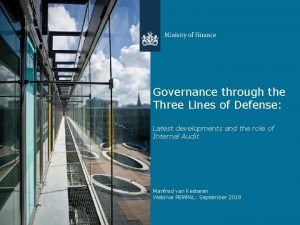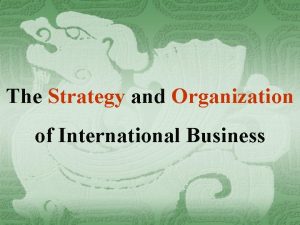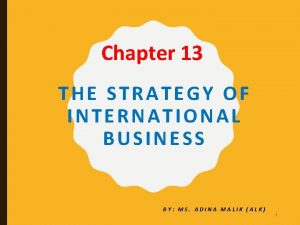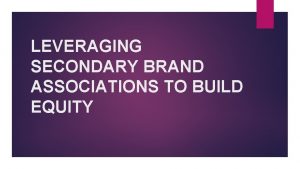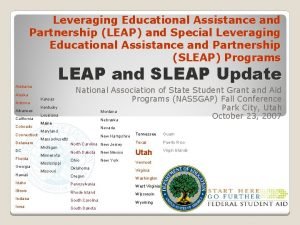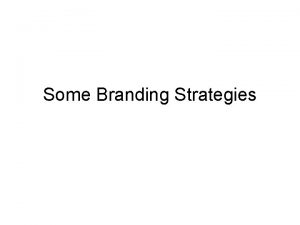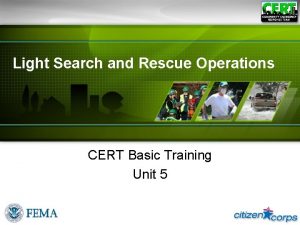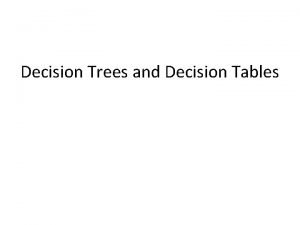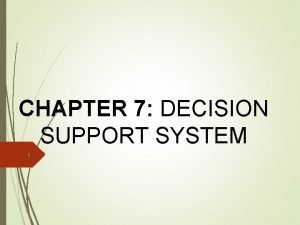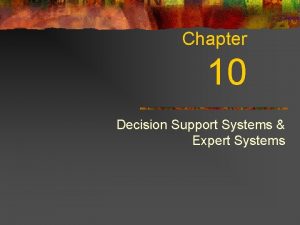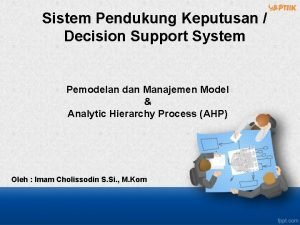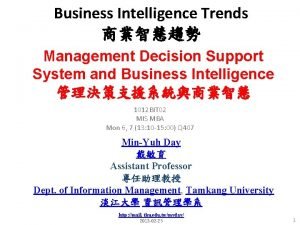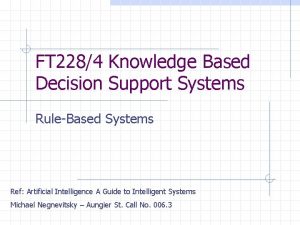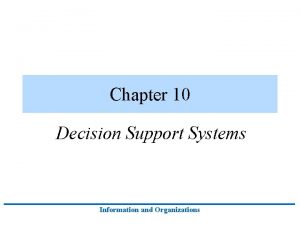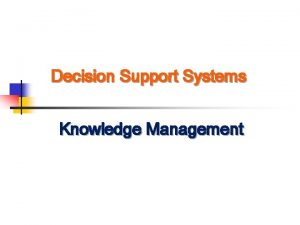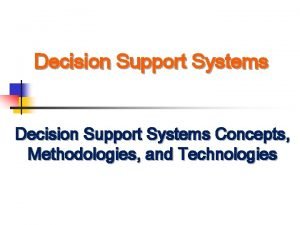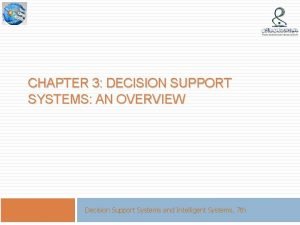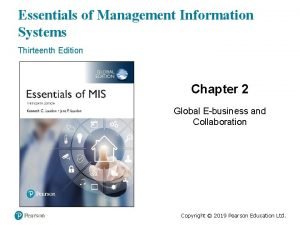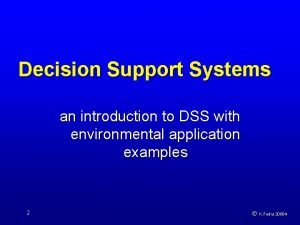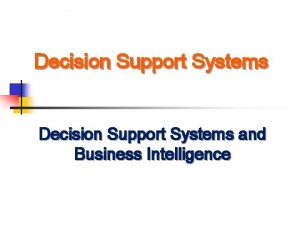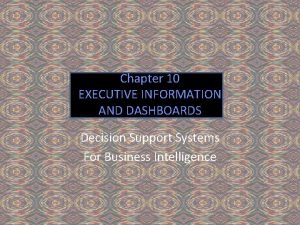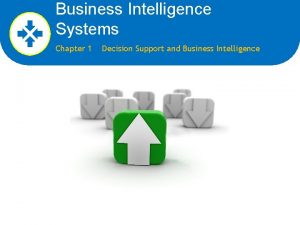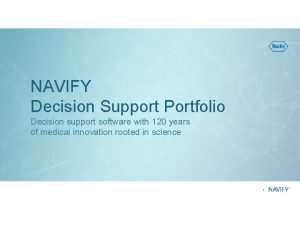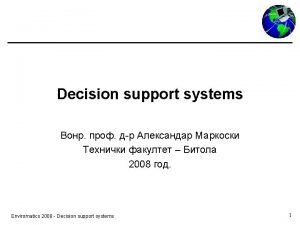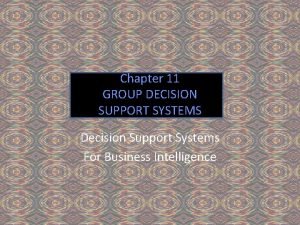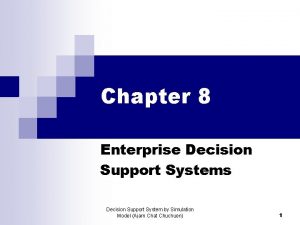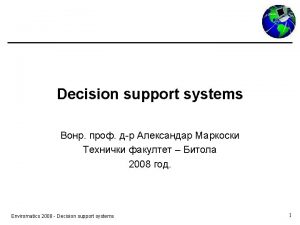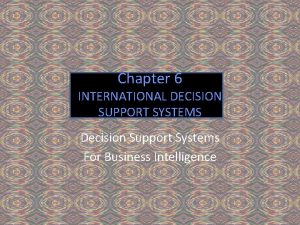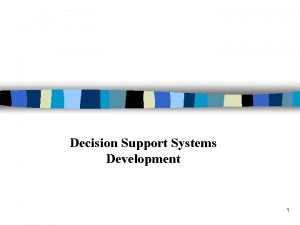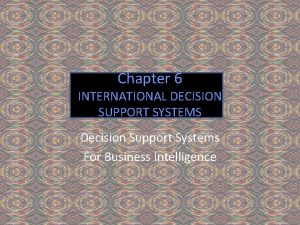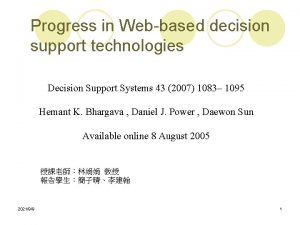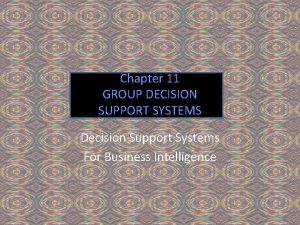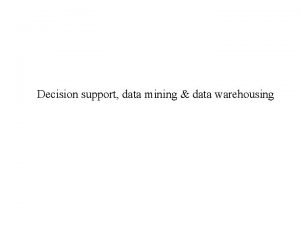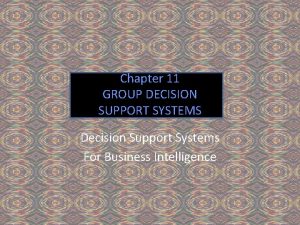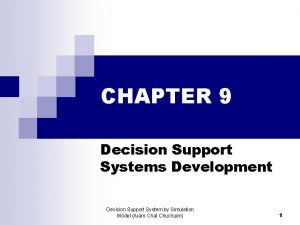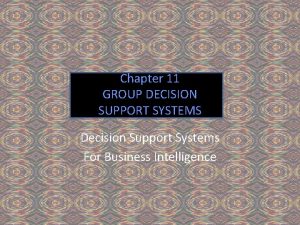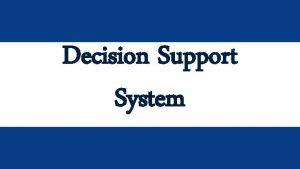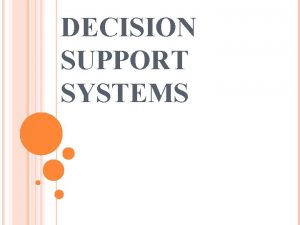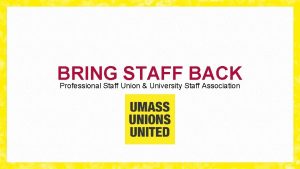Leveraging Staff Insights for Enhanced Decision Support Victoria



































- Slides: 35

Leveraging Staff Insights for Enhanced Decision Support Victoria Couch, CAIR 2020

Session outcomes Participants will… ❖ Explore how staff insights can be leveraged for decision support ❖ Learn staff opinions related to policy and campus climate from the HERI 2020 Staff Climate Survey ❖ Brainstorm how staff data can be used at their own institutions to assist with decision support

❖ Key campus stakeholders (Alves et al, 2010) Why collect data from staff? ❖ Unique perspective that contributes to a more well-rounded understanding of campus matters (Mayhew et al, 2006) ❖ Challenges of shared governance (Nadler et al, 2010) ❖ Ethical considerations

Ethical Considerations: Connection to Conference Theme What are the consequences of implementing policies that affect staff without first consulting them? What might institutional researchers miss by omitting staff data from decision support?

Prompt How has your campus used staff data in the past? <a href="https: //www. vecteezy. com/free-vector/survey">Survey Vectors by Vecteezy</a>

HERI Staff Climate Survey Overview/Background

Survey Sample/Demographics ❖ N = 4, 402 ❖ Data collection period: Oct. 2019 - May 2020 ❖ 16 institutions ➢ Community Colleges: 1 ➢ Public Universities: 1 ➢ Public Four-Year Universities: 5 ➢ ➢ Private/Nonsectarian Four-Year Colleges: 3 Private Universities: 2 Catholic Four-Year Colleges: 2 Other Religious Four-Year Colleges: 2 ❖ Geographic Regions ➢ New England (CT, ME, MA, NH, RI, VT): 1 ➢ Mid East (DE, DC, MD, NJ, NY, PA): 2 ➢ Great Lakes (IL, IN, MI, OH, WI): 5 ➢ Far West (AK, CA, HI, NV, WA): 8



Racial Group % N Alaska Native/Native American 0. 2 8 Asian 7. 5 309 Black 6. 5 269 Latinx 13. 5 Multiracial Gender Identity % N Man 30. 9 1, 268 Woman 63. 6 2, 609 558 Non-binary 0. 5 22 8. 3 342 Genderqueer/Gender Non-conforming 0. 3 14 Native Hawaiian/Pacific Islander 0. 3 14 Identity Not Listed 4. 7 192 White 62. 1 2, 566 Other 1. 5 63

Do staff feel their perspectives are valued and put to use?

Over half (52. 5%) do not believe that staff concerns are considered when making policy <a href="https: //www. vecteezy. com/free-vector/people">People Vectors by Vecteezy</a>

Over one-third (36. 5%) do not believe that their institution encourages staff to have a public voice <a href="https: //www. vecteezy. com/free-vector/mega-phone">Mega Phone Vectors by Vecteezy</a>

❖ “Staff do not have a voice at this institution. There is no consideration of staff in making policy. ” Open-ended Responses ❖ “Leadership ends up making decisions that affect all types of stakeholders in the campus community without taking the staff opinions into consideration. ” ❖ “I believe the University's governance structure does not provide a space for student affairs professionals to have an equal voice in the University. ”

Putting the Data to Work. .

Connection to Current Events ❖ Workplace safety ❖ Climate for Black staff

Staff Concerns with Workplace Safety

Recent Headlines

Total: 24. 6% cite their physical work environment as a source of stress

Total: 16. 7% cite workplace safety as a source of stress

Total: 24. 6% cite the physical demands of their job as a source of stress

❖ “I feel that there was a delay in allowing all staff to work safely from home when the degree of threat of Covid-19 became apparent. ” Open-Ended Responses ❖ “Senior Administration did not consider needs of staff's safety amid COVID-19 crisis” ❖ “There seems to be a lot of scenarios wherein the information coming in is vague or deliberately withheld or the information is relayed to faculty faster when, in practice, it is the staff that are the most affected--on the front lines. . . ”

Summary Staff Concerns with Workplace Safety <a href="https: //www. vecteezy. com/free-vector/medical-mask">Medical Mask Vectors by Vecteezy</a>

Climate for Black Staff

Recent Headlines

Total: 20. 1% dissatisfied/very dissatisfied with outcomes of administrative responses to discrimination/bias *n= 5

Total: 38. 6% strongly agree/agree, “I feel I have to work harder than my colleagues to be perceived as a competent administrator/staff member. ” *n= 7

Total: 60. 7% strongly agree/agree, “This institution has effective hiring practices & policies that increase staff diversity. ” *n= 6

❖ “We don't retain black staff & administrators. ” Open-Ended Responses ❖ “On more than one occasion, I have witnessed qualified African American women passed over for promotions. ” ❖ “Having been on this campus for 35 years, the racial and ethnic diversity for the African American staff, faculty and student has not improved. ”

Summary Climate for Black Staff <a href="https: //www. vecteezy. com/free-vector/human">Human Vectors by Vecteezy</a>

Ethical Considerations: Connection to Conference Theme What are the consequences of implementing policies that affect staff without first consulting them? What might institutional researchers miss by omitting staff data from decision support?

Prompt What are endeavors on your own campus where staff data would enhance decision support? <a href="https: //www. vecteezy. com/free-vector/survey">Survey Vectors by Vecteezy</a>

Challenges of Collecting Staff Data ❖ Capacity ❖ Institutional Support ❖ Climate surveys as, “. . . the solution to a “problem” with diversity instead of the catalyst for change” (Hurtado et al, 2008) ❖ Building trust

Conclusion <a href="https: //www. vecteezy. com/free-vector/education">Education Vectors by Vecteezy</a>

Q&A Presenter contact: vecouch@ucla. edu Please use the WHOVA Mobile App to rate this session. CAIR uses the session evaluations to determine the winners of the Best New Presenter, and Best Presenter awards each year.
 Investment decision financing decision dividend decision
Investment decision financing decision dividend decision Objectives of decision making
Objectives of decision making La victoria privada
La victoria privada Library support staff certification
Library support staff certification Lesson 1 congressional membership
Lesson 1 congressional membership Lesson 5 staff and support agencies
Lesson 5 staff and support agencies Core brand associations
Core brand associations Leveraging threat intelligence
Leveraging threat intelligence Leveraging social media for talent acquisition
Leveraging social media for talent acquisition Coso three lines of defense
Coso three lines of defense Leveraging network effects
Leveraging network effects Leveraging secondary associations
Leveraging secondary associations Leveraging coso across the three lines of defense
Leveraging coso across the three lines of defense There is low interdependence performance ambiguity
There is low interdependence performance ambiguity The strategy of international business chapter 13
The strategy of international business chapter 13 Co-branding meaning
Co-branding meaning Louisiana leveraging educational assistance partnership
Louisiana leveraging educational assistance partnership Analyzing and leveraging decoupled l1 caches in gpus
Analyzing and leveraging decoupled l1 caches in gpus Brand leveraging strategies
Brand leveraging strategies Light search and rescue operations
Light search and rescue operations Decision tree and decision table
Decision tree and decision table Decision support system objectives
Decision support system objectives Expert system in dss
Expert system in dss Contoh spk motor honda
Contoh spk motor honda Decision support system
Decision support system Knowledge based decision support system
Knowledge based decision support system Disadvantages of gdss
Disadvantages of gdss Knowledge management decision support
Knowledge management decision support Components of decision support system
Components of decision support system Data management subsystem in dss
Data management subsystem in dss Management information systems 13th edition
Management information systems 13th edition Introduction to decision support system
Introduction to decision support system Decision support system
Decision support system Decision support system dashboards
Decision support system dashboards Decision support and business intelligence systems
Decision support and business intelligence systems Navify decision support
Navify decision support


